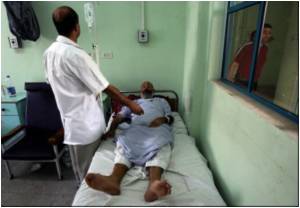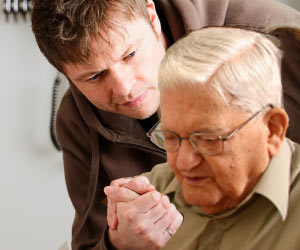A new study published in Cancer finds many cancer patients do not experience a dignified death.

Among 1131 survey respondents, 57 percent believed that patients could die with dignity on their ward. Half of the survey staff members indicated that they rarely have enough time to care for dying patients, and 55 percent found the rooms available for dying patients unsatisfactory. Only 19 percent of respondents felt that they had been well-prepared to care for dying patients (and only 6 percent of physicians felt so). Palliative care staff reported much better conditions for dying patients than staff from other wards, with 95 percent of palliative care staff indicating that patients die with dignity on their wards. Generally, physicians perceived the circumstances for dying patients much more positively than nurses, especially regarding communication and life-prolonging measures. While 72 percent of physicians reported that patients can usually die a dignified death on their ward, only 52 percent of nurses shared this opinion.
"In our aging society, it is predicted that the number of hospital deaths will continue to rise in the coming years, and many of these deaths will be attributable to cancer. For this reason, it is particularly important that cancer centers strive to create a comfortable, dignified experience for dying patients and their families," said Jors. "Above all, this requires that staff members are provided with the adequate resources to care for these patients."
The investigators encourage the integration of palliative care into standard oncology care, beginning as early as diagnosis. They also note that physicians and nurses would benefit from increased education and training in end-of-life care. To promote the development of standards for end-of-life care, establish a comprehensive palliative care curriculum for health care staff, and to encourage further research in this field, the Palliative Care Center of Excellence in Baden-Württemberg (KOMPACT) was established in 2014. "This center combines the expertise of five academic, specialist palliative care departments. We believe that this cooperation is a valuable tool for improving patient care in the end-of-life setting," said Jors.
Source-Eurekalert
 MEDINDIA
MEDINDIA




 Email
Email










